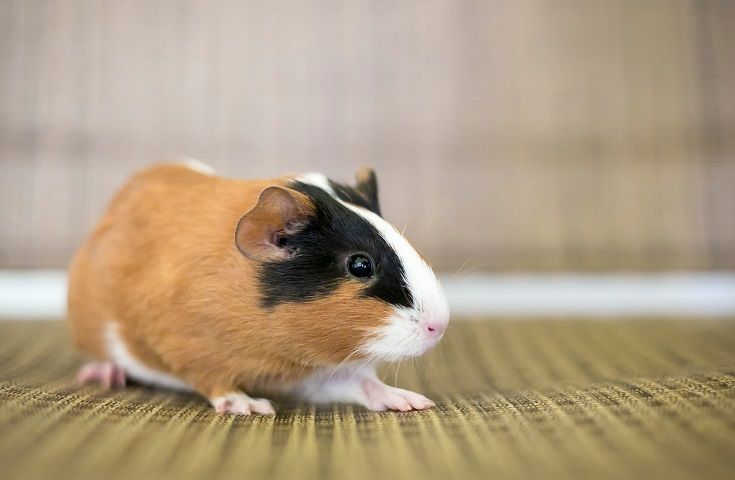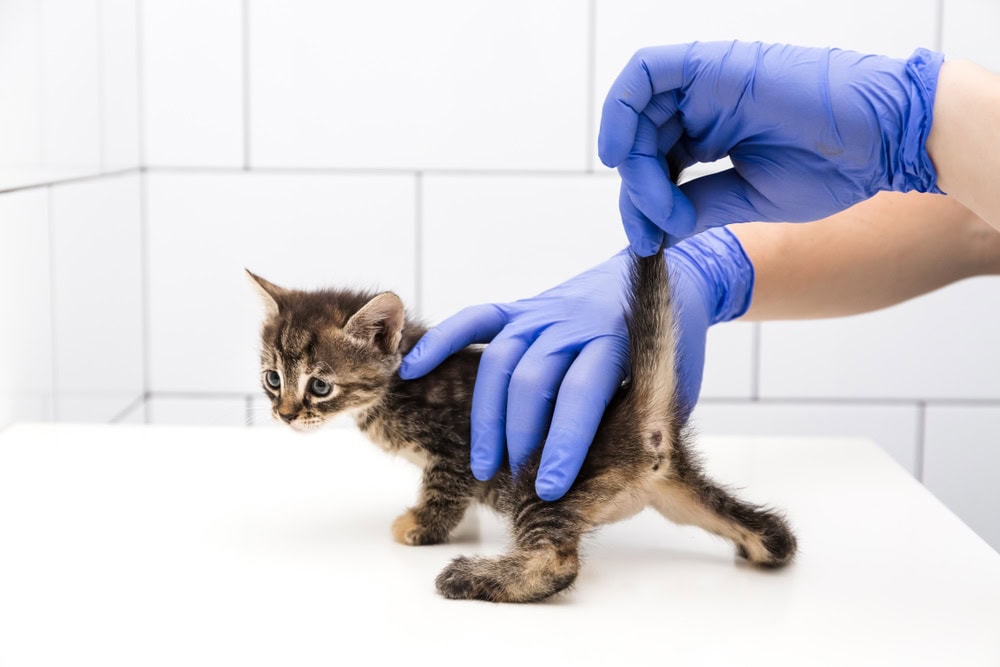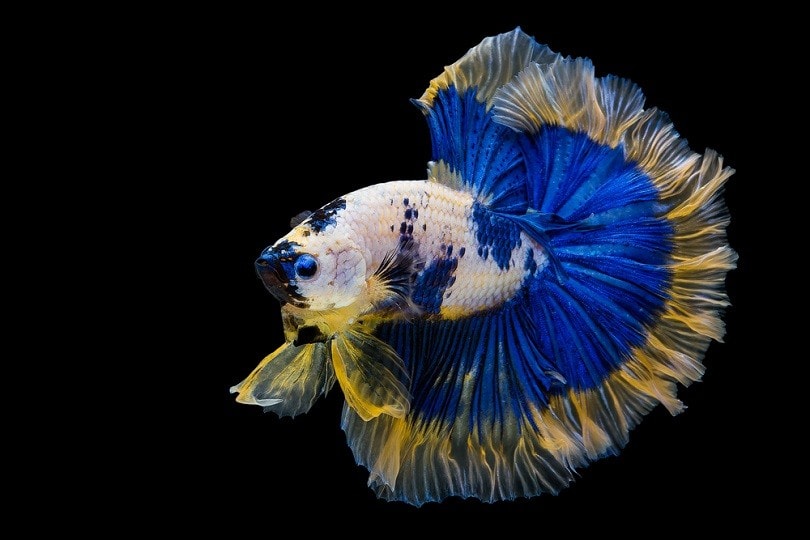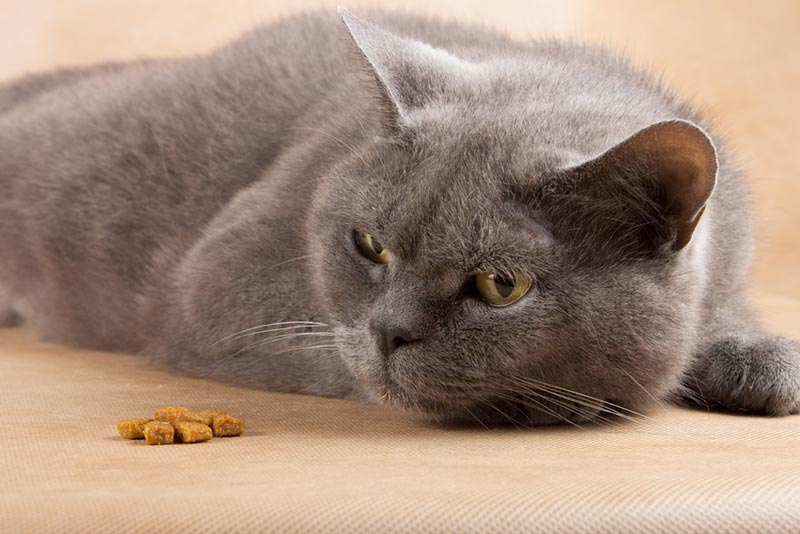VET APPROVED

The information is current and up-to-date in accordance with the latest veterinarian research.
Learn more »Click to Skip Ahead
If you’re a new guinea pig owner, you may be alarmed to see your new pet shaking. However, guinea pigs vibrate or shake for all sorts of reasons, so it doesn’t necessarily mean something is wrong. Shivering and shaking can occasionally indicate a problem. However, shaking can also be completely innocent.
In this article, we’ll look at some of the most common reasons guinea pigs may shake, as well as what you should do about it.

The 5 Possible Reasons Guinea Pigs Shake or Vibrate
1. Being Cold
Just like people, guinea pigs may shake or shiver when they are cold. You should be able to rule this factor out based on the temperature of the room. If the temperature has dropped, they are likely just cold. Consider moving them to a warmer location. While a little bit of mild cold is not typically harmful, you don’t want your guinea pigs to be too cold for too long. This may also occur if they get wet for any reason and their fur is not dried. All of this can predispose them to hypothermia.
Plus, it is simply more comfortable for them, not to mention healthier, if the room temperature is suitable.
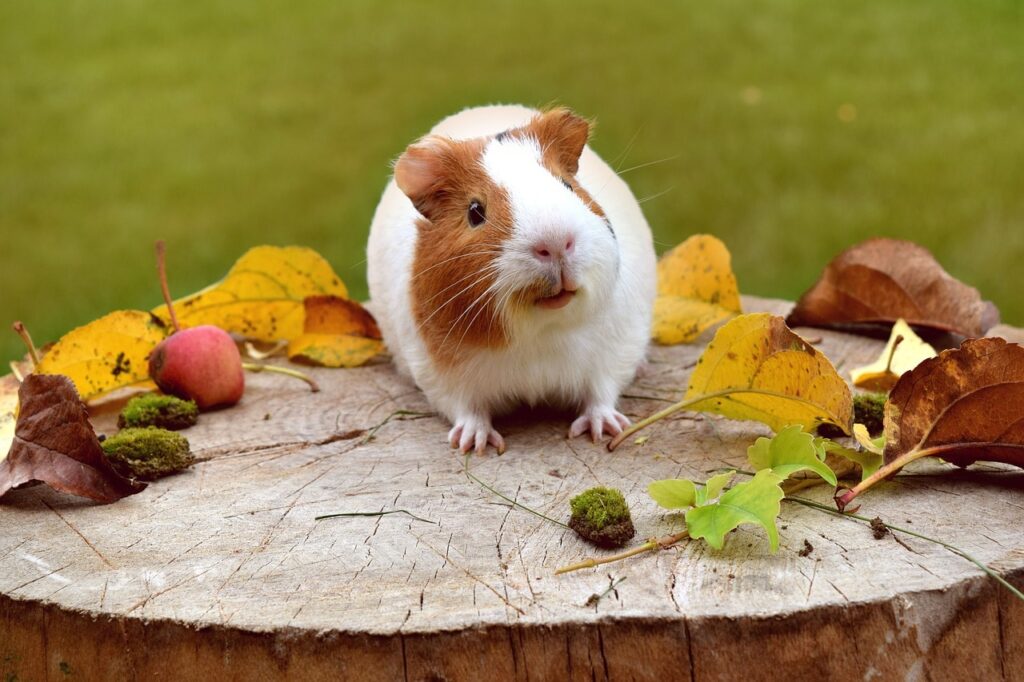
2. Fearful
Guinea pigs can also shake when they are scared or anxious. This can be due to loud noises or significant changes in their environment. If they were just adopted, shaking is probably a sign that they’re a bit stressed by the change. Often, the best thing you can do is make them comfortable and identify the cause of their stress or fear. If the cause of stress is noise, being approached or handled in a way they dislike, or the presence of other animals, ensure that you promptly reduce and remove these stressors and adjust your behavior accordingly.
Long-term stress can cause health problems, just like in people and other species. If your guinea pig seems fearful often, it may be because their hutch setup is inadequate. Ensure they have plenty of places to hide and aren’t exposed to unpleasant stimulation or other pets.
Of course, some guinea pigs are more fearful than others. Sometimes, it is merely a temperament thing based on their previous experiences.
3. Showing Happiness
Confusingly, guinea pigs can also shake or vibrate when they are happy. They can “popcorn,” which involves guinea pigs jumping up and down very quickly. They do this when they are happy and content. This can be confusing since they also shake when stressed or in pain.
However, you can usually tell based on their other behaviors why they are shaking. For instance, if they are trying to hide or are “frozen,” they are probably stressed and frightened. If they are otherwise acting happy, wanting to cuddle, seeking attention, purring, and letting out little squeaks, the shaking is probably just another way to show you their contentment.
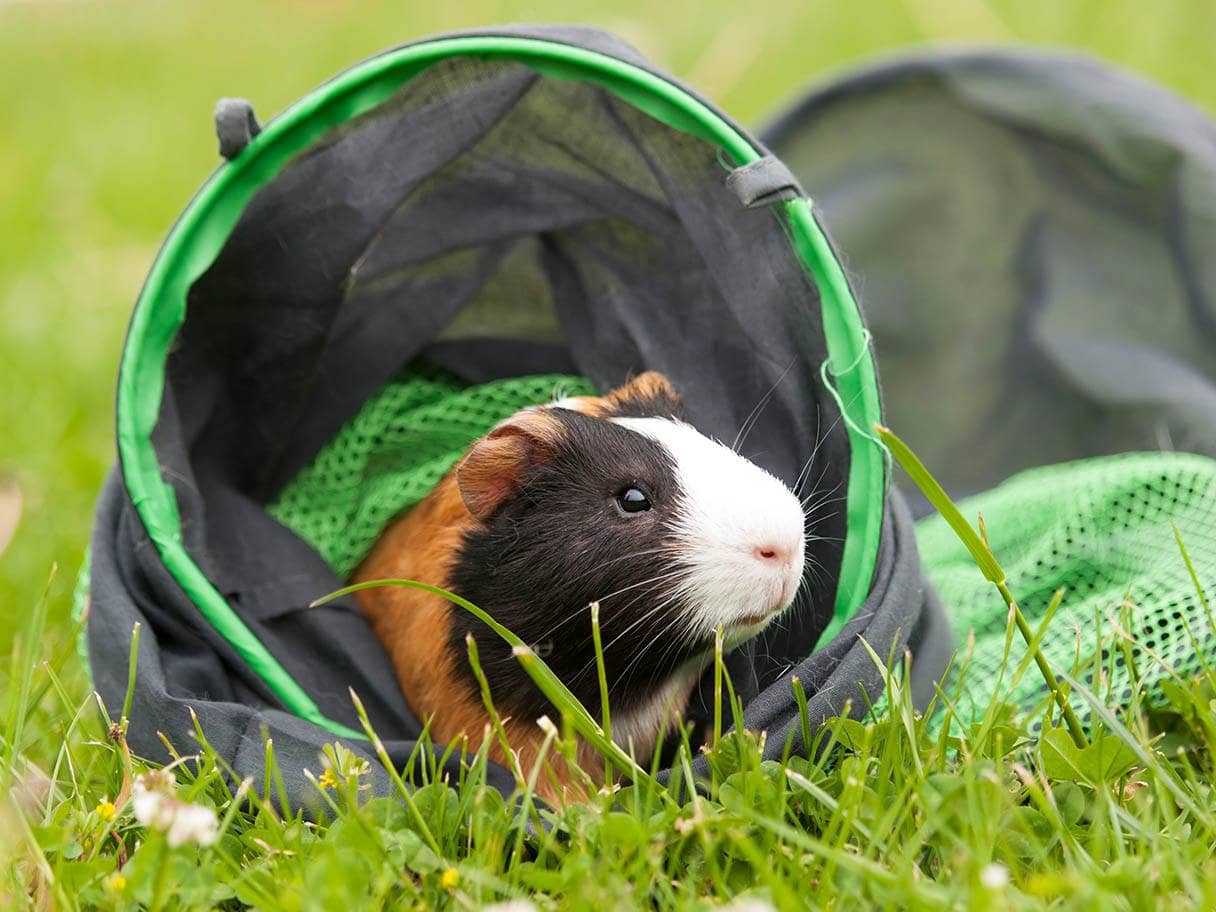
4. Sick or Unwell
A guinea pig that is sick or in pain may also shake. This can be caused by many health conditions, including teeth issues, pain from experiencing gut stasis and other digestive issues, external wounds and trauma, skin parasites causing itchiness, and many more. It’s often accompanied by lethargy, hiding, not eating or defecating as much, or having diarrhea.
5. Showing Dominance
When a guinea pig shakes their butt, they may also make a small rumbling noise. They do this to exert dominance and show sexual interest in other guinea pigs. If your guinea pig is shaking while in proximity of other guinea pigs, trying to hump or stamping their feet, they may be trying to mate or exert dominance over the other pet. This can be commonly seen between guinea pigs of both sexes during the mating season.
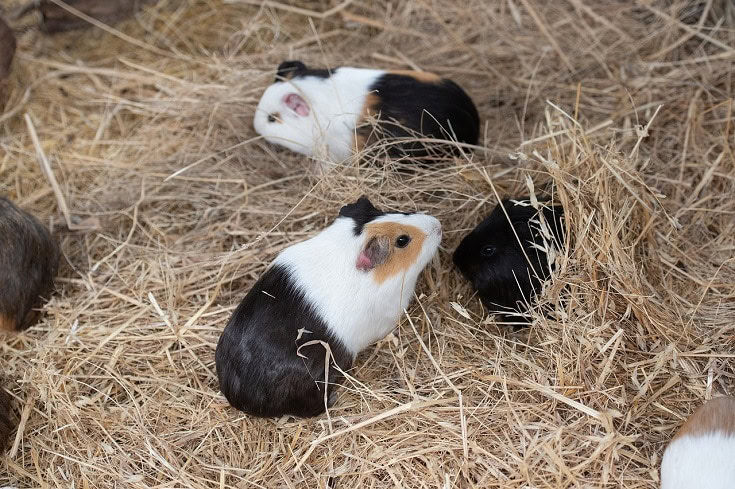

How to Stop Your Guinea Pig’s Shaking
Usually, you don’t need to stop your guinea pig’s shaking or vibrating, unless it’s caused by fear or stress, in which case you need to remove the cause. Shaking is simply a sign of something else, which may or may not be bad. You may not necessarily want to stop your guinea pig’s shaking. However, if your guinea pig’s shaking is a sign of something more serious, there are some ways to stop it.
1. Lower the Amount of Stimulation
If your guinea pig is often stressed, then you may need to lower their stimulation amount. A lot of smaller things can stress out guinea pigs. For example, the sounds from being near a TV can be very unsettling and keep them on high alert. This can cause shaking often and regularly.
Move your guinea pig somewhere a bit quieter, and consider lowering the amount of handling you’re doing, especially if they don’t enjoy it. Learn to read your guinea pig’s body language and habits so you can tailor your behavior and their environment to their needs.
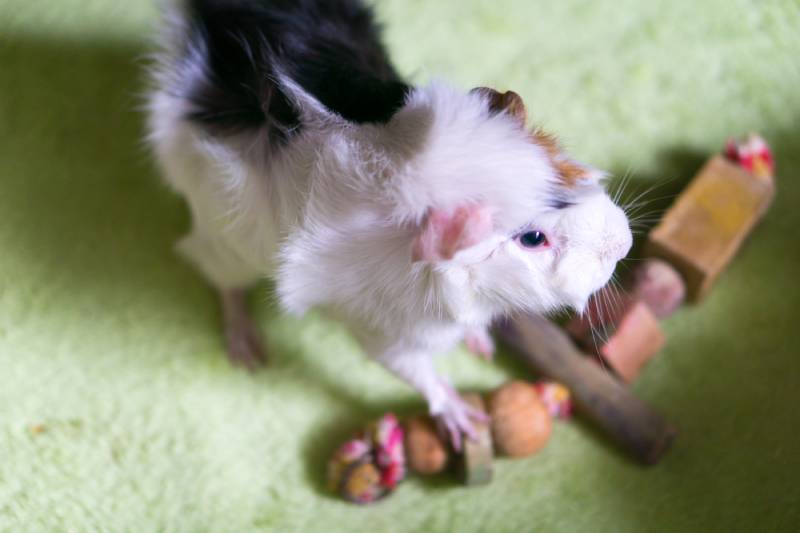
2. Contact a Vet
Your guinea pig may have a health problem that is causing the shaking. If your pet has other signs of not being well or seems to shake at random times, contact a vet. There are many conditions that can cause pain and discomfort and lead to shaking. Furthermore, diseases can cause stress and may put your guinea pig on edge, which may cause fearful shaking more easily.
It is always better to be safe rather than sorry when dealing with our pets’ health.
3. Add More Hiding Places
Sometimes, our guinea pigs are simply more skittish than others. They may require more hiding places to feel comfortable or may prefer a quieter area of the house. In this case, consider adding more hiding places and cozy bedding that they can burrow into. It may be exactly what they need to feel more relaxed in their cage.
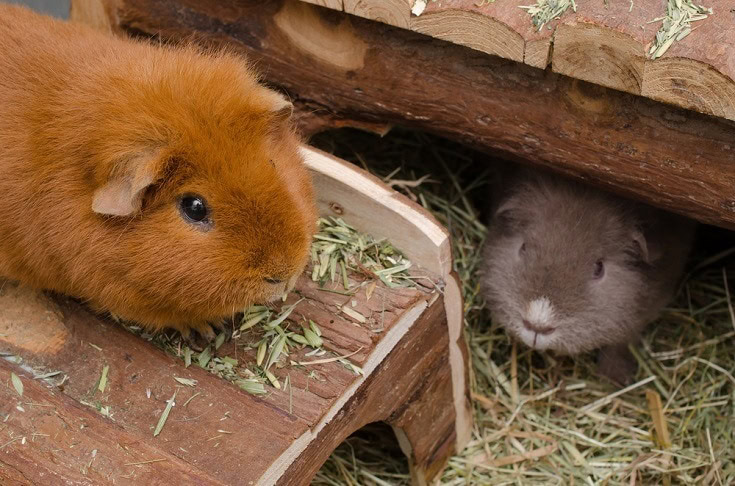

Conclusion
Now you know the main reasons why guinea pigs may shake. Thankfully, shaking does not necessarily mean an emergency. But it can indicate something is wrong. Hopefully, this article has shed some light on those situations and what you can do about them.
Featured Image Credit: Mary Swift, Shutterstock
